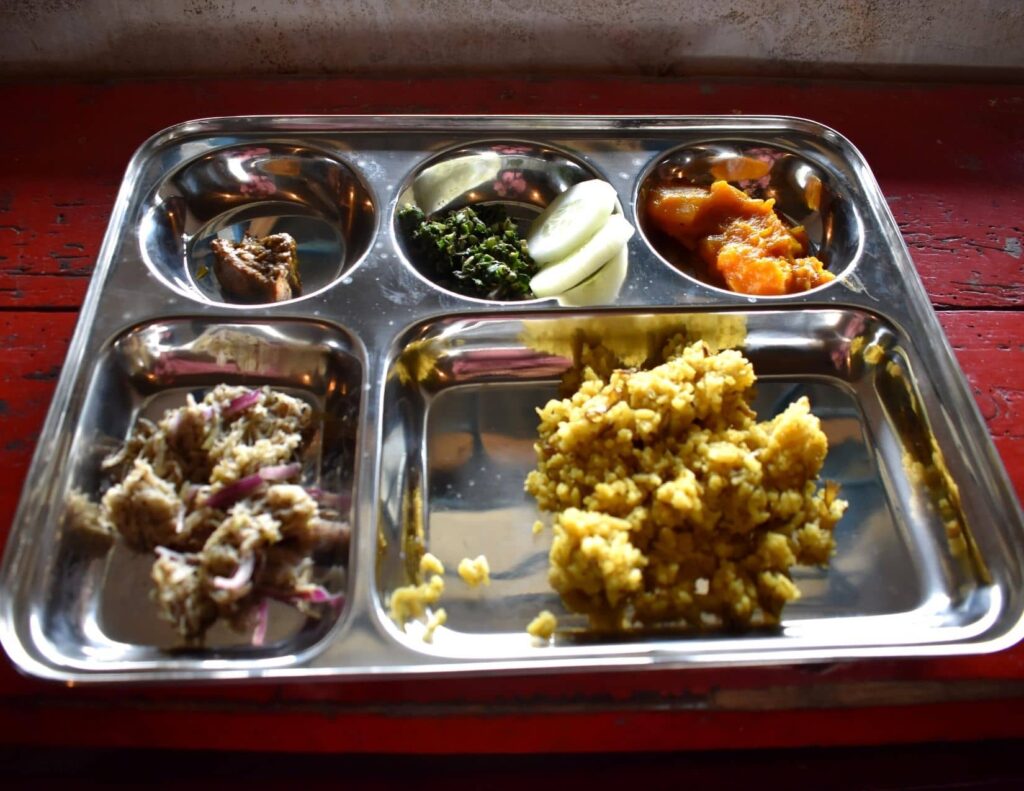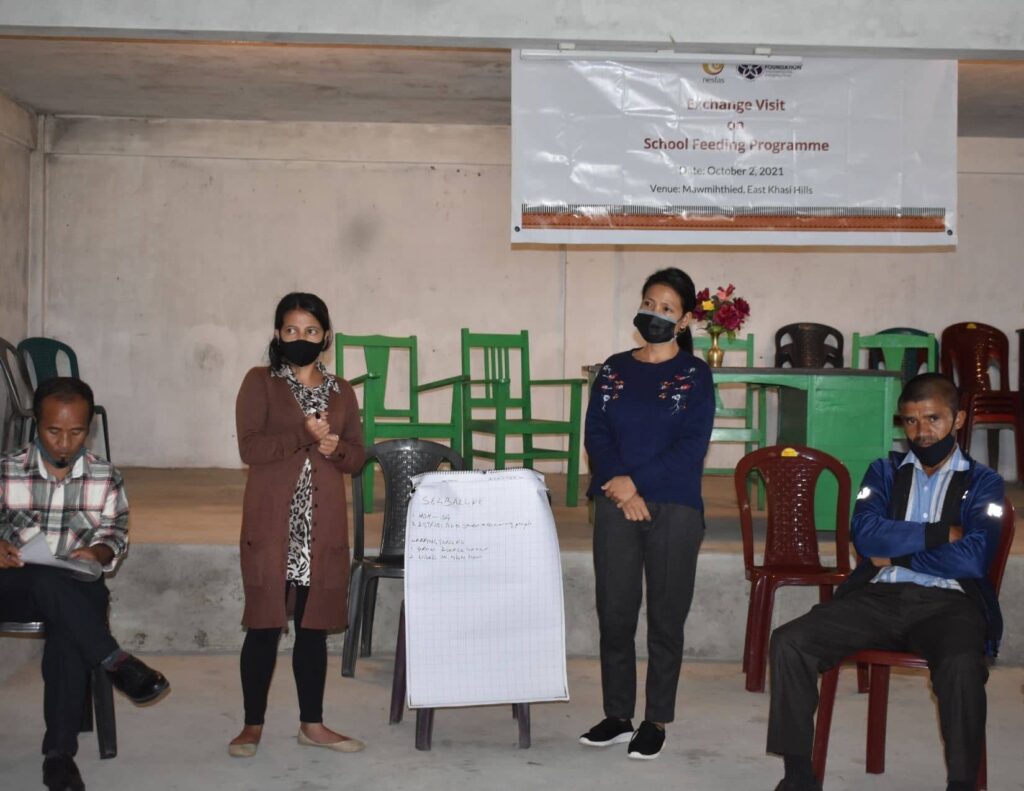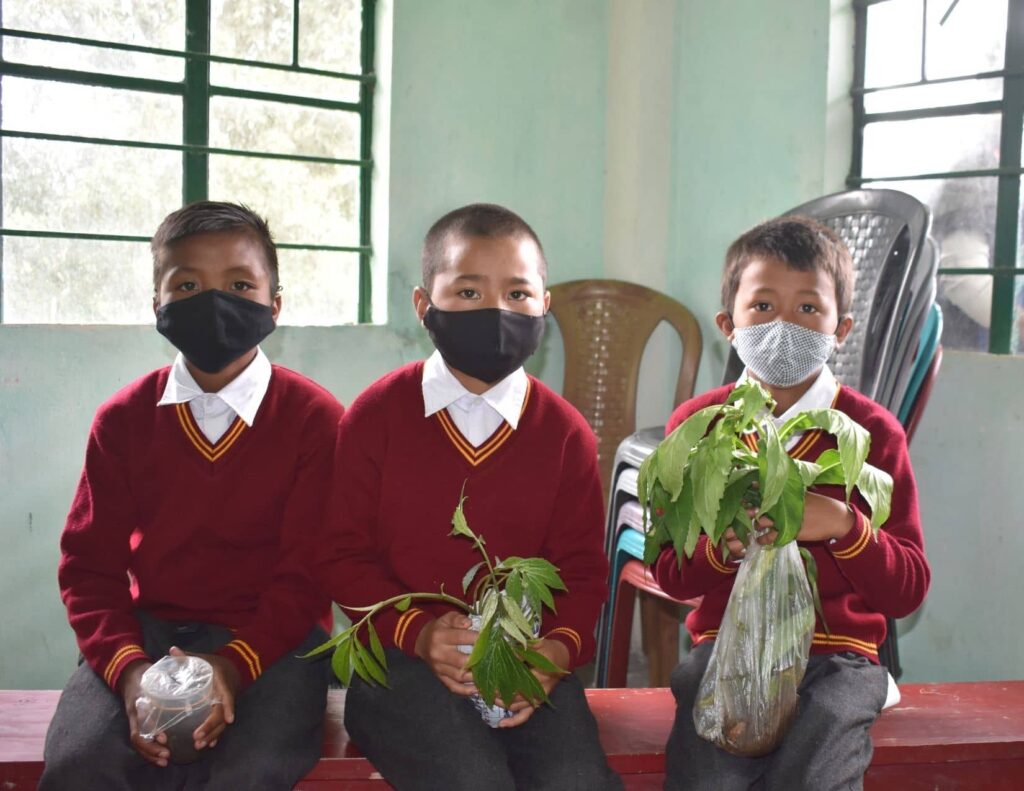An exchange visit on school feeding programme was conducted on 2nd October 2021 at Mawmihthied village, East Khasi Hills. The programme was participated by MDM cooks, teachers, community facilitators and students from Dewlieh community and six communities from Garo Hills District.
This initiative focused on improving the dietary diversity and nutritional status for the well being of the children. The participants from different regions interacted and simultaneously exchanged ideas on the School feeding programme.
School teachers of Mawmihthied, East Khasi Hills, shared that their school gardens have become a good platform for the students to learn and understand the basic methods of growing healthy foods. The garden produce is also incorporated in the Mid-Day Meal programs, providing the students with a better nutritional diet. School teachers have also taken the opportunity to involve school children in maintaining the school garden and helped them identify wild edible plants that are grown. Not only does the initiative serve as a chance for children to learn about the food they eat, but to inculcate the knowledge of farming which is slowly losing popularity among the youth.
Sham Singh Wahlang, SSA Coordinator of Sohrarim, expressed, “I would like to thank the NESFAS team for initiating these exchange visits and for introducing the concept of school gardens for the development of the school as well as for the children.” He further highlighted that this programme served as a platform for all teachers and members to explore, share experiences and know the challenges, and bring forth solutions to solve all problems that are encountered.
After the interaction, a presentation of wild edibles was displayed by the school children of Mawmihthied to showcase different kinds of local edibles that are found in their village.
After the intervention of NESFAS since 2018, the communities in Garo Hills have also started their own school gardens by planting vegetables and wild edibles which are then used to enhance the Mid-Day meal program. The vegetables sourced from the school gardens are also distributed amongst the community people.
Gresaline Ch. Marak, a school teacher from Garo Hills shared, “I have gained a lot of knowledge and ideas through this exchange visit. We will take it forward to implement the same strategies which have been shared by teachers of Mawmihthied school and initiate activities and curriculum for the students on how to preserve the school garden and their performance shall be evaluated in their final assessment”.
 Translate
Translate







